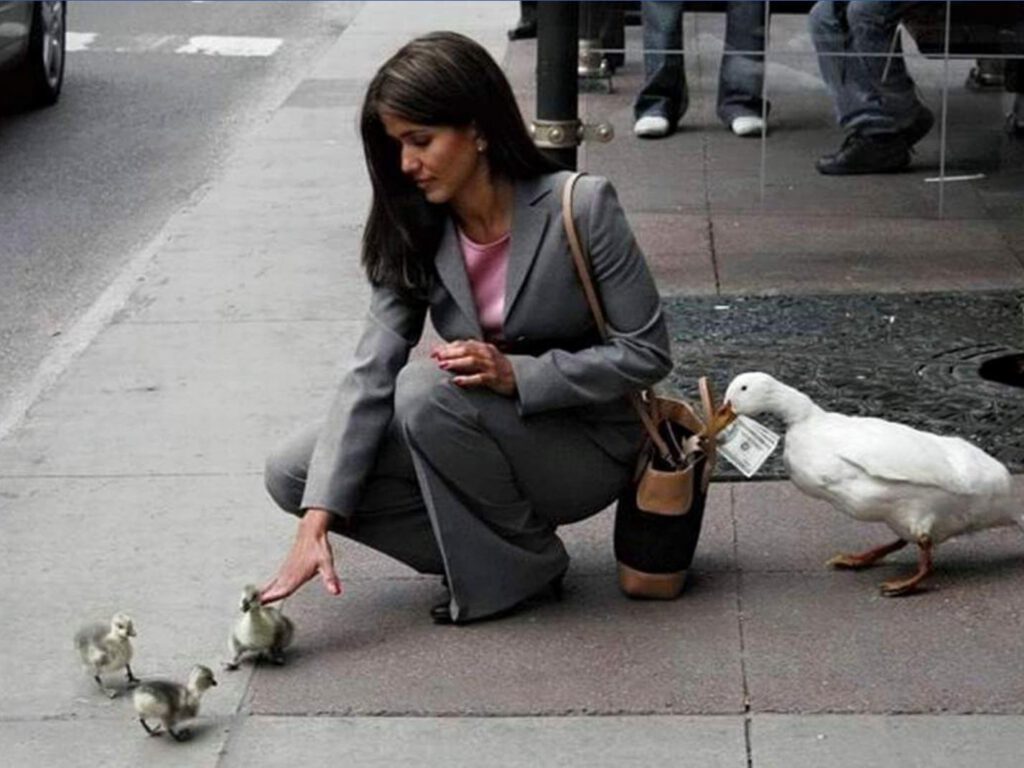Nobody expects to become a victim of crime. Whether you have been pickpocketed, suffered serious injury or have been the victim of another offence, one thing is for sure: You may have been injured or are simply upset, and you are probably confused about what to do next. Having your belongings stolen is a distressing experience for anyone, so don’t let pickpockets spoil your fun. If you believe you have been the victim of pickpocketing, you can get online legal support from us.
Pickpocketing Tourists
Turkey is a popular destination for many tourists. The country remains one of the most popular destinations around the globe. Araund fourty five million visitors come to its shores every year, with the vast majority experiencing no problems and enjoying their stays. In other words, a vast majority of holidays in Turkey are trouble-free. Nevertheless, tourists may be victim of crimes such as pickpocketing (yankesicilik), bag-slashing (kapkaççılık) and mugging (robbery by force- gasp).
Financial losses
No one ever expects to have their vacation or business trip interrupted by a criminal act, but it might happen. One should realize that a victim of pickpocketing suffers a financial loss in the form of a stolen smartphone or bare cash and additionally faces a tedious process of replacing the identity card, driving license, banking cards.
Pickpocketing crime phenomenon seems to be very much alive in the world of tourism. When searching the internet for pickpocketing, all first results are websites related to travelling. These websites, such as tripadvisor.com, lonelyplanet.com, thesavvybackpacker.com, warn tourists who are planning to visit Turkey and give them tips.
Meaning of Pickpocketing
Pickpocketing can be described as the unnoticed theft of items that are carried on the body of the victim. Pickpockets are especially active in heavily crowded areas such as shopping streets, markets or public transport. Pickpockets work alone or in group and often use recurring scenarios such as asking for directions, spilling a drink… whilst stealing the targets valuables. Typically victims do not notice the theft until they want to use the stolen item. By then the pickpocket is long gone.
Some of the current methods
Most pickpockets work in teams and collaborate with each other: for example, whilst one of the thieves distracts a person, an accomplice will steal from them. They have a diverse repertoire. We have included some of the current methods here:
- Pickpockets in train stations or airports often look out for travelers with luggage. A thief will appear helpful and will offer to carry the suitcase. While they rush ahead or create a traffic jam, an accomplice might take any valuable items from the victim’s handbag or shoulder bag.
- One or more thieves push the victim in a crowd or sandwich them. An accomplice positions themselves in front of the victim and comes to a sudden stop. As the victim crashes into the accomplice and therefore becomes distracted, the pickpocket steals valuables from their rucksack. As the victim crashes into the accomplice and therefore becomes distracted, the pickpocket steals valuables from their rucksack.
- Rows of seats, for example in a train or restaurant, offer thieves a great opportunity. As soon as someone hangs their jacket over the back of their chair, the pickpocket has access to it and is able to remove any valuable items from inside.
- Escalators provide thieves with various opportunities, for example:
- A thief stands behind the victim on the escalator, and an accomplice stands in front. When they reach the end, the one in front will create a traffic jam, and the victim gets stuck. This allows the thief behind the victim to take their purse from their handbag.
- A thief stands behind the victim on the escalator. An accomplice presses the emergency stop button. The sudden stop gives the thief the opportunity to carry out the theft unnoticed.
- Begging trick is mainly carried out by children who pretend to be deaf and mute. The victim is met with a cardboard sign asking them to give some money. While the victim readily searches for change in their purse compartment, the thief takes bank notes from underneath the cardboard sign. The handle of the open handbag is also a possibility for pickpocketing.
- After a bank or cash machine (ATM) visit, the victim is “accidentally” covered in ketchup, ice cream or some sort of liquid. During lengthy attempts to clean up the mess, the money that the victim has just withdrawn disappears from their pocket.
- The pickpocket approaches potential victims, acts lost, and asks them to explain the route using a map. While the victim is holding the map and orienting themselves, the pickpocket opens their handbag unnoticed. While the victim is focusing on the map, the thief is able to remain unseen and steal more hidden objects.
- The pickpocket greets the victim enthusiastically, gives them a high five and takes their arm to dance with them, or puts their leg between the victim’s in order to show them a football trick. The pickpocket or an accomplice uses the victim’s inattentiveness to take their purse or mobile phone. People under the influence of alcohol are easy victims.
- An accomplice inquires for a particular product in the supermarket that they are looking for. Whilst the victim is assisting them, their handbag is searched in the shopping trolley and their purse or the entire bag is taken.
- A thief watches the victim type in their pin number at an ATM. The accomplices create, for example, a human traffic jam, in which the victim’s purse together with their credit card is stolen. The card is given to the thief who spied on the PIN number as it was entered. The thief then goes to the next ATM and withdraws money from the victim’s account.
Costing time and money
The consequences of becoming a pickpocketing victim surpass the level of losing valuables such as a smartphone of bare cash. The victim will have to go through the tedious process of replacing all stolen goods such as the smartphone, identity and banking cards. Applications for replacing these items will have to be made at several institutions and will cost the victim time and money.
For a tourist there are however additional concerns. Finding a police station and reporting the crime is not easy because of barriers such as language and a limited knowledge of the city map. Also the loss of identity papers will have ramifications for the travel back home. Finally, and evidently, the loss of banking cards will impede the rest of the holidays because of a limited access to financial resources. Following these insights, it should be clear that an incidence of pickpocketing has a more severe impact as one would expect from a ‘petty theft’.
What to do?
Nobody expects to become a victim of crime. Whether you have been pickpocketed, suffered serious injury or have been the victim of another offence, one thing is for sure: You may have been injured or are simply upset, and you are probably confused about what to do next.
Having your belongings stolen is a distressing experience for anyone, so don’t let pickpockets spoil your fun. If you believe you have been the victim of pickpocketing, you can get online legal support from us.
If you or somebody you love has become the victim of pickpocketing in Turkey, contact the skilled and experienced team at Just & Fair – Bıçak Law Firm for an immediate case consultation.
In emergency situations or to report a crime in progress, call 155 to report the incident to the nearest police. For non-emergency situations requiring legal assistance or to make an appointment to report a crime in person, call (0553) 223 32 90 (if using a mobile phone with an international SIM card please dial +90 553 223 32 90).
Making a claim on travel insurance
In Turkey, you must report the crime before you leave the country if you want it to be investigated. You might need to report the crime to make a claim on your travel insurance.
Crime of theft
In Turkey, pickpocketing will generally fall under the crime of theft. This crime occurs when somebody takes another person’s wallet, purse or bag, without force or knowledge. A pickpocketing charge differs from shoplifting, burglary, robbery and other types of theft because it often involves the victim, but without that person’s knowledge. Equally important, pickpocketing lacks force. There is no intimidation, force or threat of force involved. Since the victim often has no idea that the pickpocketing is even taking place, there is no force used. In some occasions, there might be a bump involved. The pickpocketing suspect might bump into the victim or even have somebody else bump into the victim as a diversion tactic, allowing them to quickly and quietly snatch the wallet or pocketbook.
Officially reporting a crime
If you want to report a crime, you should contact your nearest police station. Once you have officially reported a crime, the process cannot be reversed. This is because police and prosecutors in Turkey are legally obliged to investigate almost all types of crime reported to them.
There is only a small number of less serious crimes that the victim can choose to prosecute or not (for example: insult or property damage). In Turkey, these crimes are prosecuted “upon application.” This means that the authorities prosecute the offence only if the victim specifically tell them to do so. In these cases you have a deadline of six months to tell the authorities to prosecute the offence once you have become aware of the crime and know who the offender is.
Compensation and damages for pain and suffering
Have you suffered injury because of a crime, or would you like to receive damages for pain and suffering? Do you want to make these claims during the criminal trial? This is usually possible. In order to “add” your compensation claims to the trial, however, you must first submit an application. You can do this immediately when you report the crime to the authorities. You can also claim compensation outside of the trial. In this case you must turn to a civil court.
 English
English Türkçe
Türkçe Français
Français Deutsch
Deutsch



Comments
No comments yet.